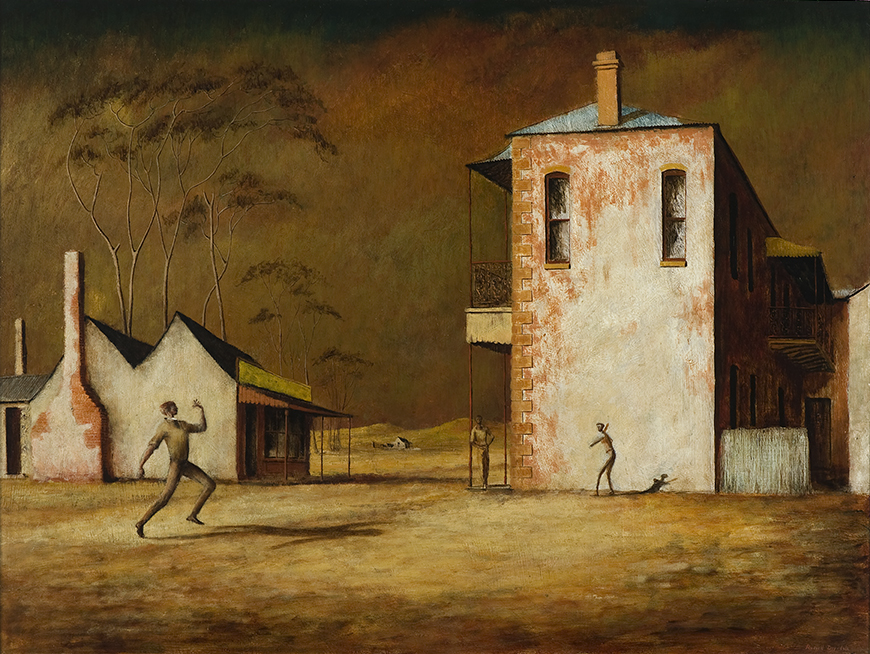Russell Drysdale: Defining the Modern Australian Landscape
This exhibition focuses upon Russell Drysdale’s images of the Australian interior, surveying the artist’s approach to landscape across painting, drawing and photography—the first exhibition to explore his outback work across these three media. Taking a fresh look at this major artist, and based on original research, the exhibition shows how Drysdale highlighted what he saw as urgent issues facing Australia at mid-century: his works directly confronted problems in land management, the effects of drought, environmental degradation, Aboriginal dispossession, even the devastation of modern war.
The exhibition reveals the underpinning symbolism of Drysdale’s outback imagery. Those desert scenes were deceptive. We see how some pictures refer to the plight of Australian soldiers in the Second World War, and others to the aftermath of the Atomic cataclysm. Also explored are Drysdale’s efforts to blend landscape painting with surrealism, while many pictures and photographs are connected to his journeys into the Australian interior—drawings and documentary materials from an excursion into a crippling drought are shown. The selection puts the artist’s photographs and preparatory drawings against finished canvases. Another group of works also shows the artist’s deep concern for Aboriginal peoples, and how he positioned Indigenous figures within his paintings to convey his distress at their dispossession.
This groundbreaking exhibition reveals Russell Drysdale as a man seemingly ahead of his time, who not only shaped perceptions of the national landscape. Drysdale used visual art to pose questions about land and environment—disturbing questions that our society is only now confronting.
